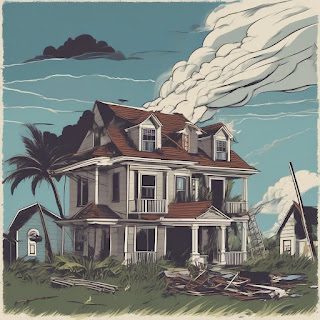Can I Go Without Homeowners Insurance in Florida?
Outline
1.Introduction to Homeowners Insurance
- Understanding the purpose of homeowners insurance.
- Importance of having homeowners insurance in Florida.
2.Legal Requirements in Florida
- State laws regarding homeowners insurance.
- Penalties for not having homeowners insurance.
3.Risks of Going Without Homeowners Insurance
- Natural disasters in Florida.
- Liability coverage.
- Protection of personal belongings.
4.Alternatives to Traditional Homeowners Insurance
- Self-insurance.
- Exemptions for certain properties.
5.Financial Consequences
- Potential financial losses.
- Impact on mortgage requirements.
5.Cost-Benefit Analysis
- Weighing the costs of insurance against potential losses.
- Factors influencing insurance premiums.
6.Mitigating Risks
- Taking preventive measures.
- Exploring additional insurance options.
7.Common Misconceptions
- Beliefs about homeowners insurance.
- Clarifications on coverage.
8.Expert Recommendations
- Insights from insurance professionals.
- Advice on making informed decisions.
9.Conclusion
- Summarizing key points.
- Emphasizing the importance of homeowners insurance in Florida.
Can I Go Without Homeowners Insurance in Florida?
Introduction to Homeowners Insurance
Homeowners insurance serves as a crucial financial safety net, protecting homeowners against unexpected disasters and liabilities. In a state like Florida, prone to hurricanes, floods, and other natural calamities, having homeowners insurance is not just a choice but often a legal necessity.
Legal Requirements in Florida
In Florida, homeowners insurance is not mandated by law. However, if you have a mortgage on your property, your lender will likely require you to have a minimum level of coverage to protect their investment. Failure to comply with this requirement could result in penalties, including the lender purchasing insurance on your behalf, which can be significantly more expensive than procuring your own policy.
Risks of Going Without Homeowners Insurance
Opting out of homeowners insurance in Florida exposes you to a myriad of risks. The state is no stranger to hurricanes, floods, and other natural disasters, which can cause extensive damage to your property. Moreover, homeowners insurance also provides liability coverage, protecting you in case someone is injured on your property or if you accidentally damage someone else's property. Additionally, it covers the cost of replacing or repairing personal belongings damaged or stolen during unforeseen events.
Alternatives to Traditional Homeowners Insurance
While traditional homeowners insurance is the most common way to protect your property, there are alternatives. Some homeowners opt for self-insurance, setting aside funds to cover potential losses instead of paying premiums to an insurance company. However, this approach requires significant financial discipline and may not provide comprehensive coverage. Furthermore, certain properties, such as condominiums, may have exemptions or different insurance requirements.
What Happens If You Don't Have Homeowners Insurance in Florida? Click here
Financial Consequences
The financial consequences of forgoing homeowners insurance can be severe. In the event of a disaster, you may face substantial repair or replacement costs, potentially leading to financial ruin. Moreover, if you have a mortgage, your lender may require you to obtain insurance to protect their investment. Failure to do so could result in defaulting on your loan, leading to foreclosure.
Cost-Benefit Analysis
When considering whether to purchase homeowners insurance, it's essential to weigh the costs against the potential benefits. While insurance premiums can be expensive, especially in high-risk areas like Florida, the financial protection it provides in the event of a disaster can far outweigh the costs. Factors such as the location and age of your property, the level of coverage you choose, and your deductible can all impact the cost of insurance.
Mitigating Risks
While homeowners insurance provides essential protection, there are steps you can take to mitigate risks and potentially lower your insurance premiums. Installing storm shutters, reinforcing your roof, and having a comprehensive home security system can all help reduce the likelihood of damage or theft. Additionally, exploring additional insurance options, such as flood insurance or umbrella policies, can provide added peace of mind.
Common Misconceptions
There are several misconceptions surrounding homeowners insurance, such as the belief that it only covers the structure of your home. In reality, most policies also include coverage for personal belongings, liability protection, and additional living expenses in case your home becomes uninhabitable due to a covered event. It's essential to read your policy carefully and understand what is and isn't covered.
Expert Recommendations
Insurance professionals recommend homeowners in Florida to invest in comprehensive insurance coverage that includes protection against hurricanes, floods, and other natural disasters. They also advise homeowners to regularly review and update their policies to ensure they have adequate coverage based on their changing needs and circumstances.
Conclusion
While homeowners insurance is not legally required in Florida, it is highly advisable. The risks of going without insurance far outweigh the potential cost savings, especially in a state prone to natural disasters. By investing in comprehensive insurance coverage and taking preventive measures, homeowners can protect their property, finances, and peace of mind.
FAQs
- Is homeowners insurance mandatory in Florida?
- Homeowners insurance is not legally required in Florida, but mortgage lenders typically require it.
- What does homeowners insurance cover in Florida?
- Homeowners insurance in Florida typically covers damage to your property, personal belongings, liability protection, and additional living expenses.
- How much does homeowners insurance cost in Florida?
- The cost of homeowners insurance in Florida varies depending on factors such as the location and age of your property, the level of coverage you choose, and your deductible.
- Can I get homeowners insurance if I live in a high-risk area in Florida?
- Yes, you can still get homeowners insurance in high-risk areas, but it may be more expensive, and you may need additional coverage for specific risks like hurricanes or floods.
- What happens if I don't have homeowners insurance in Florida and my property is damaged?
- If you don't have homeowners insurance and your property is damaged, you will be responsible for covering the repair or replacement costs out of pocket, which can be financially devastating.

.jpg)

ليست هناك تعليقات: